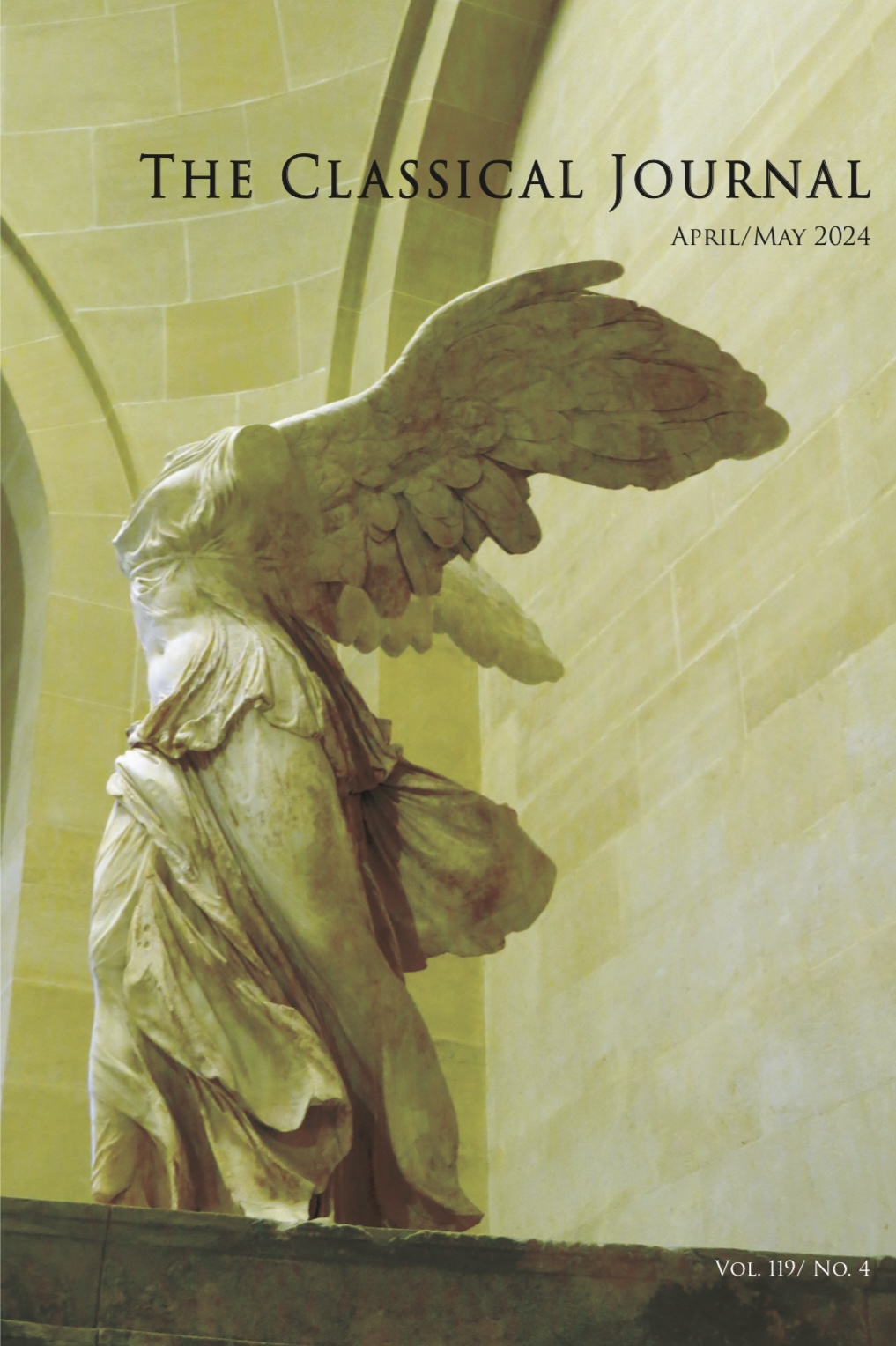The following articles are contained in CJ
118.2
Abstracts of Articles
Deciding the "Judgement of Arms"
The tale of how Achilles’ armor was awarded to a worthy successor evolved to reflect customary procedures and emerging ideology. In this article I offer a new reconstruction of that changing story, as variations in the method of decision reshaped the plot to match audience expectations. The epic version began with ad hoc arbitration and an element of chance that left the loser no one to blame. The generations after Cleisthenes developed a Judgment by majority rule in which each voter must choose for himself but all are responsible, and Αjax becomes a reactionary against that new regime.
Friendship and Reputation in Plato's Crito
Crito cites his motivations to smuggle Socrates out of prison as concern for his friend and concern for his own reputation among the Many. Socrates, in his reply, refers only to the latter reason. The selectivity of this response does not draw comment from Crito, opening the door to an understanding that it is his reputation among the Many that is his primary—or even sole—concern. Taking a different approach, I suggest that Socrates’ response reflects a complex relationship between Crito’s two motives. This relationship, I argue, may remain relevant to law-breakers today. It can also shed light on wider questions concerning the dialogue as a work of philosophical literature from the early fourth century, on ancient Athenian democracy and the law-abiding, and eventually concerning the way to read such a treatise.
Euripides' Hippolytus: The Human Discourse Between Amechania and Mechania
In this article I analyze how ἀμηχανία, μηχανία and their roots are central in Euripides’ Hippolytus. In the first part, I investigate closely specific occurrences of ἀμηχανία in the play: this condition of “helplessness” appears at key moments of the drama, first in relation to women at large, then in connection to Phaedra specifically. The second part is dedicated to μηχανία, the ability to contrive. This skill also recurs throughout the play: Theseus regards it as a general (yet ambiguous) feature of mankind in his speech, but it also becomes a prerogative of female characters (Phaedra, the Nurse) and describes their agency on stage.
The Vocabulary of Fate in Apollonius Rhodius' Argonautica
Apollonius updates the usage of terms around the concept of fate from their earlier poetic usages, particularly his primary Homeric models, so that they reflect 3rd-century philosophical discussions. He uses the general terms for fate (αἶσα, μοῖρα, πότμος, οἶτος) more narrowly than Homer, avoiding personifications and their use as synonyms for “death” or “day of one’s death;” he introduces a pattern where “fulfilling one’s fate” refers to the fulfillment of a prophecy introduced in the Argonautica. These usages are congruent with Stoic doctrines of an impersonal and universal fate, which is supported by the truth of prophecies. With ἀνάγκη, likewise, Apollonius narrows the Homeric usage, but more significantly he rejects later developments of “necessity” to become coextensive with “fate” in Greek thought, so that his usage seems to refer to the 3rd-century controversy about the relation of the two. He expands occasional Homeric uses of κήρ as a personification and as escapable, so that this term expresses the themes excluded from his stricter use of the central terms for fate. Experiments with new senses of χρεώ further support the picture of Apollonius consciously remodeling his vocabulary of fate.


